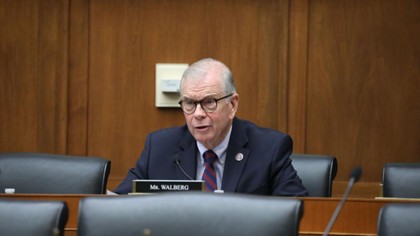New Report Shows How Collective Bargaining Is A Critical Tool To Improve Public Education in Virginia
Research shows the positive impact that collective bargaining has on student experience, educator pay, and teacher retention
RICHMOND, VA – As educators and advocates across the commonwealth are organizing in their communities to introduce and pass inclusive collective bargaining ordinances for public school employees, The Commonwealth Institute for Fiscal Analysis (TCI) released a report today detailing the benefits of collective bargaining for educators and students. The report, “Collective Bargaining: A Critical Tool to Improve School Staffing, Pay, and Morale,” outlines research about how collective bargaining will positively impact student experience, staffing retention, educator pay, and staff morale in Virginia public schools.
According to the report, the people that make up Virginia’s public education system have long been forced to do increasingly more with increasingly less – a dynamic only exacerbated by the COVID-19 pandemic. With the third worst teacher pay penalty in the country in 2021, Virginia teachers are paid 32.7% less — just 67 cents for each dollar — compared to their peers with similar education levels in other professions. Low pay is also a reported factor in the pre-pandemic and post-pandemic shortages of support staff in Virginia.
“By boosting teacher pay, improving working conditions, reducing turnover, and increasing voice on the job, collective bargaining benefits students and communities as a whole,” says Mel Borja, Worker Power Policy Analyst at The Commonwealth Institute and author of the report. “Higher teacher pay attracts higher-quality teachers, which positively influences student outcomes. Low teacher retention, however, negatively impacts student achievement for all students in school, with the strongest impacts seen in the reading and math outcomes for low-performing and Black students.”

Research shows that collective bargaining is a critical tool to address teacher pay, staff shortages, and more. Unionized teachers are paid more compared to their non-teacher peers with equivalent education and experience than non-unionized teachers are. Significant wage gains for unionized female teachers demonstrate positive implications for gender equity. Additionally, stronger collective bargaining results in lower teacher transfer rates for all schools, including those that are low-poverty and those that are high-poverty. Unions also serve as mechanisms for teacher voice and allow teachers to negotiate for enhanced protections and working conditions, which helps boost teacher job satisfaction, educator morale, and student outcomes.
“Our public education system’s most valuable resource is its people,” says Borja. “They should be allowed to join together to improve their and their students’ working conditions. It is time that all teachers and school staff in Virginia are permitted to collectively bargain.”
The full report, “Collective Bargaining: A Critical Tool to Improve School Staffing, Pay, and Morale,” can be found at www.thecommonwealthinstitute.org.



